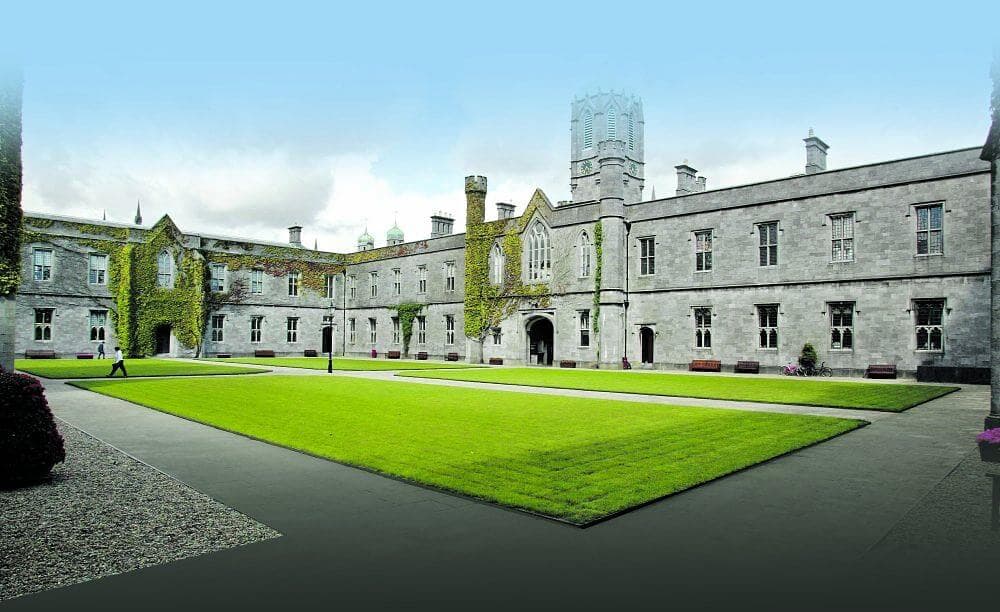Programme Structure
Coastal and Marine Environments: Physical Processes, Policy and Practice is a full-time postgraduate MSc programme delivered over 3 semesters (12 months). It is directed at graduates from Geography, Natural Sciences and other related disciplines in the social and natural sciences, and at professionals in the field who are interested in furthering their knowledge of coastal and marine environments. A part-time option is available for mid-career EU residents with professional backgrounds and training.
Modules (all 10 ECTS unless otherwise stated)
Research Methods and Mapping (Dr Aaron Potito). This module outlines the principles of designing and implementing a research project: collecting representative data in the field; coding data and database construction; quantitative data analysis; and mapping and spatial data analysis within a Geographic Information System. The aim of the module is to instill in students the ability to collect primary and secondary data, analyse those data, draw conclusions, and present findings in a meaningful and professional manner.
Coastal Processes and Landforms (Dr. Eugene Farrell). The purpose of this module is to provide a general introduction to the discipline of coastal geomorphology, a review of coastal environments and related problems, and a more detailed consideration of beach-dune systems. Specifically, this module will focus on identifying and understanding the complex relationships between the suite of physical processes actively shaping the coast. Emphasis is put on critical analyses of the process-landform models (e.g. sediment transfers; system equilibria) operating on different time scales (seconds to millenia). Other themes will examine how multi-disciplinary field based sciences are designed and used to inform future coastal management strategies.
Reconstructing Marine Environments (Dr Audrey Morley). This module introduces the concept of using a multidisciplinary ecosystem approach to study the marine environment, incorporating key disciplines such as geomorphology, physical and chemical oceanography, and marine geosciences. Teaching focuses on the practical, cross-disciplinary skills involved in sample and data acquisition and processing, deployment and operation of equipment and instrumentation and analyses of these data.
Biodiversity and Coastal Change (Dr Terry Morley). Coastal habitats are one of the most sensitive environments to climate change. This course aims to foster an interdisciplinary assessment and analysis of coastal biodiversity science and conservation within a context of global change. Students will learn techniques used to identify, monitor, and analyse biodiversity at multiple scales and ecosystems, and how to assess coastal habitat sensitivity to environmental change. Students will be exposed to current ecological methods, major threats to coastal environments, and the legislastive framework used to implement conservation and restoration in coastal ecosystems. The course will provide hands' on training in the R statistical programming language via DataCamp online data science education.
Dynamics of Climate Change (Dr Gordon Bromley). This module explores the processes of low-latitude ocean-atmosphere heat transfer and the mechanisms by which local perturbations are transmitted globally. Students will be introduced to current concepts in tropical climate dynamics, physical records of past tropical change, and the ramifications of tropical instability for global climate. Emphasis will be placed on the El Nino-Southern Oscillation, which represents the dominant source of global climate variability on Earth today. Case studies will demonstrate the marine, terrestrial, and human aspects of the role of the tropical oceans in global climate.
Marine Spatial Planning and Policy (Dr Liam M. Carr). This module critically explores how society has viewed and used coastal and marine environments throughout history, examines evolving views on how these systems have been valued, evaluates various policies and practices employed in its management, and identifies current and future issues that threaten coastal and marine system functionality and resilience. Students will be introduced to a range of tools used in managing coastal and marine environments, and will investigate policy and practice suitability at both single- and multi-sector levels. Special attention will be given to the suite of EU policies concerning coastal and marine systems, including the Habitats Directive, Marine Strategy Framework Directive, Water Framework Directive, Common Fisheries Policy, and the Maritime Spatial Planning Directive. Governance policies will be critiqued and students will gain experience in understanding the role and impact of public outreach and media coverage.
Dissertation (Independent Research Project; Advisor selected for project). This is a key module in the programme. It allows students to develop, organise and execute a research project based on independent research which will bring to the fore their critical analysis skills, their practical and applied skills and their ability to link classroom and real world challenges. The conducting of an independent research project is one of the foremost skills developed during a student’s academic career.
Curriculum Information
Year 1 (90 Credits)
- Required TI6105: Biodiversity and Coastal Change
- Required TI6134: Dynamics of Climate Change
- Required TI6125: Research Methods and Mapping
- Required TI6104: Coastal Processes and Landforms
- Required TI6109: Dissertation (Research Paper)
- Required TI6112: Reconstructing Marine Environments (Research Vessel Skills)
- Required TI6102: Marine Spatial Planning and Policy
